Retro Replay Review
Gameplay
Terminator 2029 drops you straight into the conflict against Skynet as a member of John Connor’s elite Special Operations Group. The core gameplay loop revolves around a first-person perspective, but with a twist: you’re restricted to the four compass directions. Movement is handled via the arrow keys, and each press snaps your view by 90 degrees. This grid-based exploration lends a deliberate, methodical pace to the action, requiring careful planning and positioning rather than frantic, freeform strafing.
(HEY YOU!! We hope you enjoy! We try not to run ads. So basically, this is a very expensive hobby running this site. Please consider joining us for updates, forums, and more. Network w/ us to make some cash or friends while retro gaming, and you can win some free retro games for posting. Okay, carry on 👍)
You’re outfitted in the Advanced Combat Armor, which features configurable weapon slots for quick swapping on the fly. As you progress, you collect an arsenal of futuristic firearms, rocket launchers, energy rifles, and specialized attachments like scoped sights or under-barrel grenade launchers. The ability to toggle between weapons in seconds adds a layer of tactical decision-making—choose a rapid-fire SMG to clear out swarms of renegade machines or equip a long-range gauss rifle when picking off distant Hunter-Killers.
Aiming is handled with the mouse, and the left button serves as your trigger. Though the rotation mechanic may feel restrictive at first, it encourages thoughtful engagement with enemy patterns and choke points. Coupled with the sense of weight in each shot and the armor’s HUD feedback, the gameplay loop strikes a solid balance between strategic planning and pulse-pounding firefights. Whether you’re clearing out derelict factory floors or storming Skynet bunkers, Terminator 2029 keeps tension high through its measured yet rewarding combat system.
Graphics
Terminator 2029’s visuals reflect the early ’90s era of PC shooters, with chunky sprite-based enemies and pre-rendered textures that capture the grim, industrial aesthetic of a near-future war zone. While polygon counts are modest by modern standards, the game makes effective use of color—stark metallic grays contrast with the blood-red skies of Skynet’s war-torn landscapes. This limited palette reinforces the sense of desolation and technological menace.
Environments range from ruined city blocks and rusted factories to subterranean data centers humming with neon circuitry. Each area is richly detailed, with flickering lights, animated security turrets, and environmental hazards like steaming pipes or electrified floors. The level design cleverly employs these elements to force you into cover-based encounters or funnel you into narrow corridors, heightening suspense as you anticipate robotic ambushes.
Enemy sprites and boss machines are well-animated for the period, featuring fluid movement cycles and dynamic attack patterns. Explosions and weapon effects punch through the visual noise, providing clear feedback on hits and critical strikes. While you won’t find high-resolution textures or realistic lighting engines here, the game’s retro charm and consistent art direction deliver an immersive portrayal of a human resistance fighting a remorseless AI.
Story
Set in 2029, decades after Skynet’s nuclear apocalypse, Terminator 2029 thrusts you into the shoes of an insurgent soldier within John Connor’s Special Operations Group. Your missions take you from the outskirts of Los Angeles into Skynet’s fortified command centers, each stage revealing fragments of an overarching plan to obliterate the enemy’s core intelligence. Briefings are delivered via text and occasional radio chatter, painting a bleak picture of humanity’s dwindling hope.
While the narrative is straightforward—assassinate high-priority targets, disable power nodes, rescue resistance cells—the world-building comes through mission design and scattered data terminals. Finding encrypted files or recovering civilian logs adds depth to the story, shedding light on the personal toll of the war. These optional objectives encourage exploration and reward players with new intel on Skynet’s vulnerabilities or special ammo types.
The game’s tone captures the Terminator franchise’s trademark mix of relentless machine pursuit and human tenacity. Though there are no full-motion cutscenes, animated stills and minimal voice samples punctuate critical moments, such as the reveal of a prototype T-1000 unit or a desperate evacuation. This pared-down storytelling may feel sparse, but it leaves room for your own imagination to fill in the bleak, post-apocalyptic world’s scars.
Overall Experience
Terminator 2029 may wear its age on its pixelated sleeve, but its core mechanics remain compelling. The marriage of grid-based navigation and first-person shooting creates a unique tactical challenge that stands apart from both free-roaming FPS titles and turn-based strategies. Each mission feels like a miniature puzzle—choose the right gear loadout, plan your approach, and adapt quickly when Skynet’s forces strike from unexpected angles.
Combat flows smoothly once you’ve mastered the snap-turn movements, and the weapon customization keeps encounters fresh across various mission types. You’ll scavenge ammo for your thermal optic rifle one level and swap to a rapid-fire chaingun the next, making resource management vital to survival. This ebb and flow of equipment scarcity fuels a constant sense of urgency.
For fans of classic shooters and Terminator lore, this game offers a satisfying, if unpolished, trip back to the war-torn future. Its emphasis on strategic action, atmospheric level design, and relentless machine adversaries ensures that Terminator 2029 remains a memorable entry in the franchise’s gaming history. If you’re looking for a challenging retro FPS that rewards ingenuity as much as trigger discipline, this mission to destroy Skynet is well worth undertaking.
 Retro Replay Retro Replay gaming reviews, news, emulation, geek stuff and more!
Retro Replay Retro Replay gaming reviews, news, emulation, geek stuff and more!
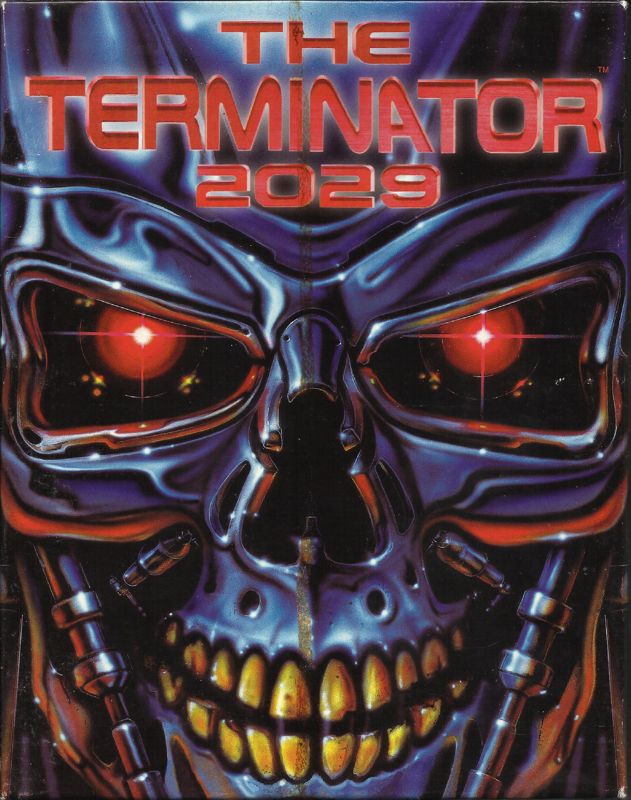
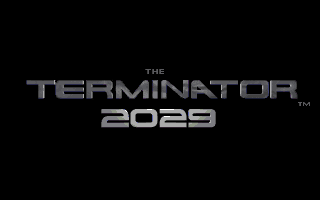
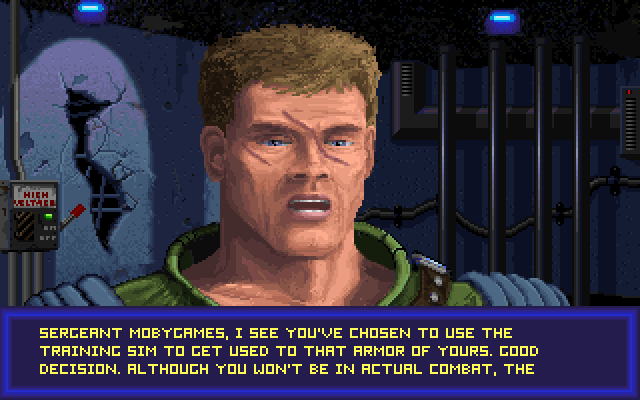
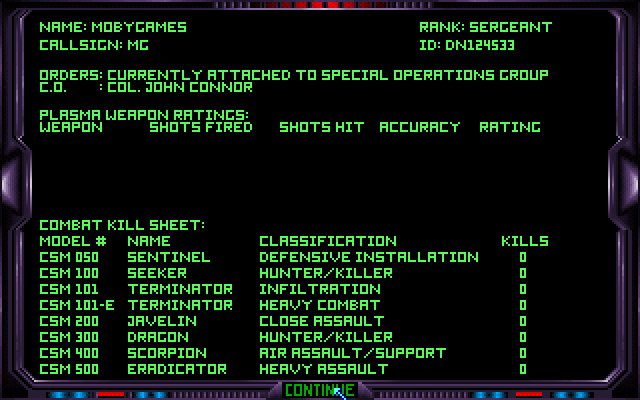
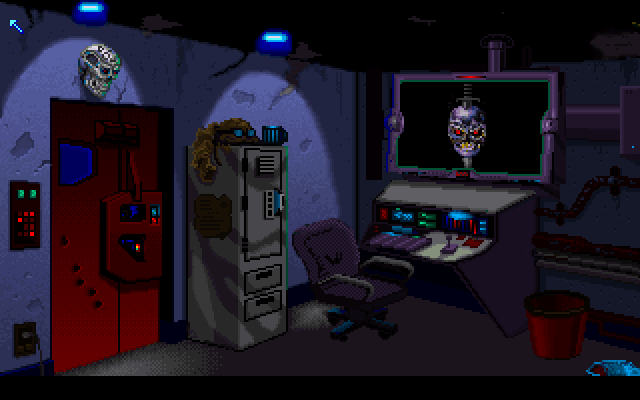
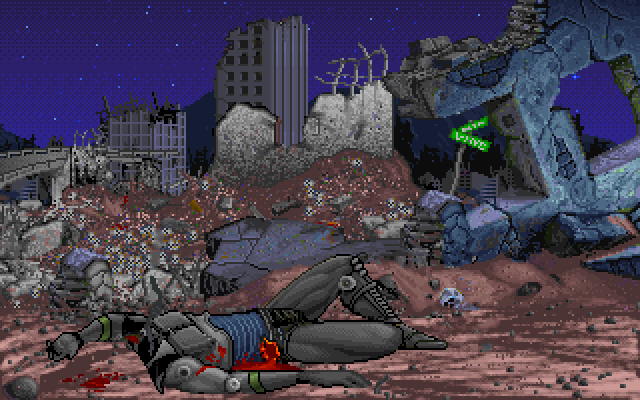



Reviews
There are no reviews yet.